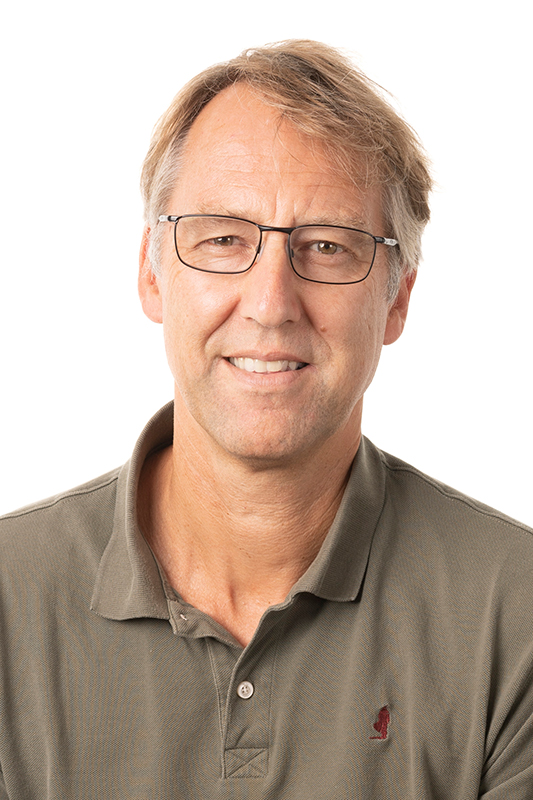The Norwegian Fuel Cell and Hydrogen Systems Laboratory (N-FCH)
The Norwegian Fuel Cell and Hydrogen Systems Laboratory is hosted by IFE, and is one of three nodes in the Norwegian Fuel Cell and Hydrogen Centre (N-FCH).
The N-FCH Systems Laboratory focuses on the integration of fuel cells (mobile applications) and water electrolysers (stationary applications) into power systems. The N-FCH Systems Laboratory is located in the IFE Hynor Hydrogen Technology Centre at Kjeller, Norway.
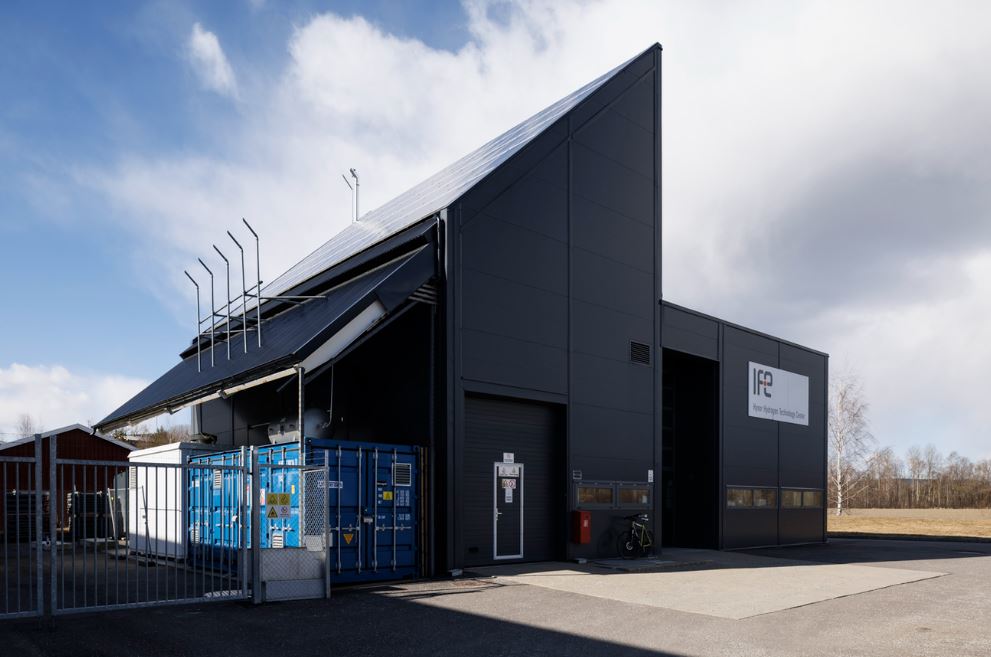
Power System
In the N-FCH Systems Laboratorythe battery module, fuel cell system and water electrolyser are connected to the same DC-bus via dedicated DC/DC converters (figure below). The DC/DC-converters are custom-made in order to provide a large flexibility with respect to input voltages and currents, making it possible to test many different types of units. The DC-bus is connected to the local grid via an AC/DC bidirectional converter, which can be programmed to emulate different types of loads or generators.
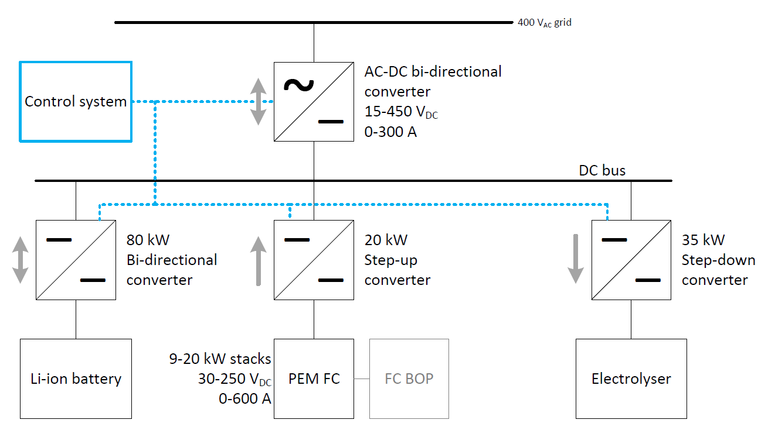
Fuel Cell System
The fuel cell testing system is designed to test and validate low temperature PEM fuel cell stacks. It is possible to test both full stacks with smaller electrode areas (high voltage, low current), as well as short stacks with larger electrode areas (low voltage, high current), with power ratings up to 20 kW.
The Balance of Plant components for the fuel cell test rig, designed and built by IFE, includes a monitoring- and control system. Reference fuel cell stacks, components, and control systems are delivered from well-known manufacturers, such as PowerCell, Busch, Bürkert, Vaisala and National Instruments.
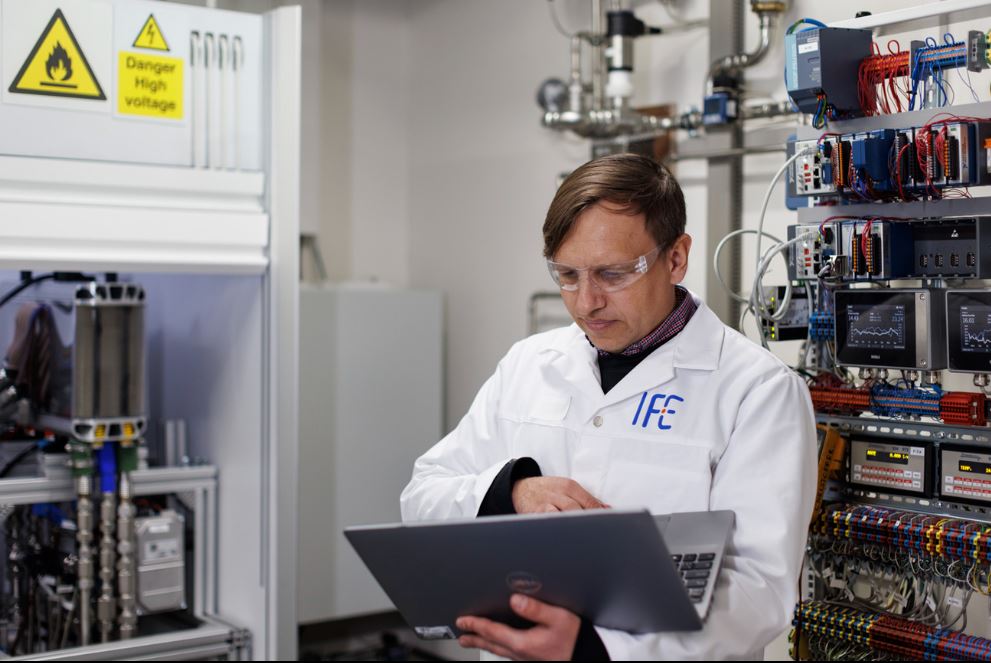
Water Electrolyser System
The water electrolyser system platform is designed to operate prototype PEM electrolysers up to 200 bar, 410 A, and 33 kW. This flexible testbed, designed and built by IFE, is well suited to study performance and degradation of next-generation stacks and systems, and to tailor and test control strategies that safeguards the system and maximizes efficiency and durability when operated with intermittent renewable energy sources.
More info about the High Pressure PEM Water Electrolysis System Laboratory
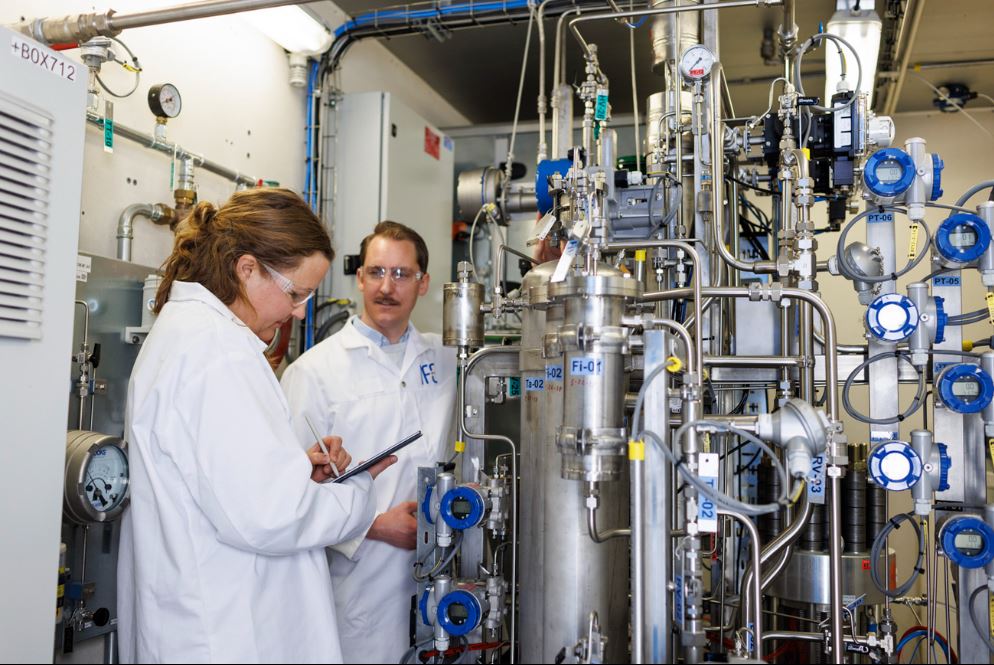
Battery System
The battery pack will be delivered by Corvus and consist of three Dolphin ESS modules wherein each module has a nominal voltage of 115 VDC. The battery system will be delivered with a pack controller and a system controller.
System Applications
The flexible power system setup in the N-FCH Systems Laboratory (figure above) makes it possible to emulate the operation and performance of several different types of FCH power system applications. IFE is currently focusing on the following applications:
- Fuel cell power systems for ships, locomotives, and heavy duty vehicles
- The N-FCH Systems Laboratory can here be used to emulate duty cycles (e.g. motors) and test corresponding performance of fuel cells, batteries, and hybrid fuel cell / battery system configurations. (MoZEES RA3 and H2 Maritime research topics)
- Water electrolysis for renewable energy based power systems
- The N-FCH Systems Laboratory can here be used to emulate duty cycles (e.g. grid load profiles, solar and/or wind generation) and test the performance of water electrolyzers, batteries and hybrid system configurations (MoZEES RA3 research topic)
N-FCH Centre
The N-FCH Centre is a research infrastructure project funded by the Norwegian Research Council. The first phase of the project was from 2016 to 2018, where the goal was to establish the new N-FCH research infrastructure. IFE is obligated to operate the N-FCH Systems Laboratory until 2026.
The two other nodes of the N-FCH infrastructure project are the low temperature fuel cell and electrolyser laboratory hosted by NTNU/Sintef in Trondheim, and the high temperature fuel cell and electrolyser laboratory hosted by Sintef in Oslo. Both of these laboratories focus on the components of the fuel cell and electrolyser stack, and have test stations for testing single cells and short stacks.
More information about IFE Hynor Hydrogen Technology Centre
More info about the Norwegian FCH research infrastructure project: www.sintef.no/projectweb/nfch/
More info about MoZEES RA3 research topics: www.mozees.no
Additional contacts:
Water electrolysis: Ragnhild.Hancke@ife.no
Fuel cell systems: Piotr.Bujlo@ife.no

